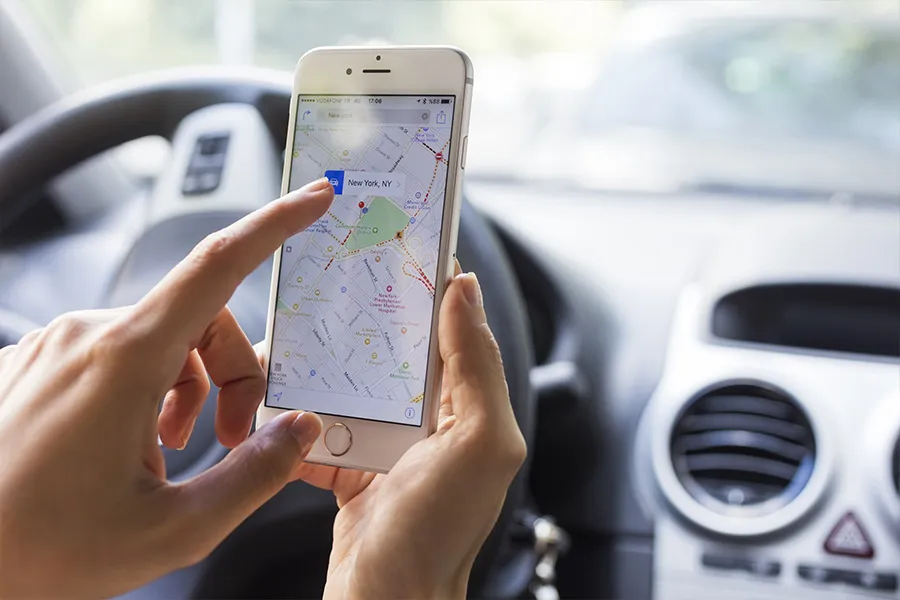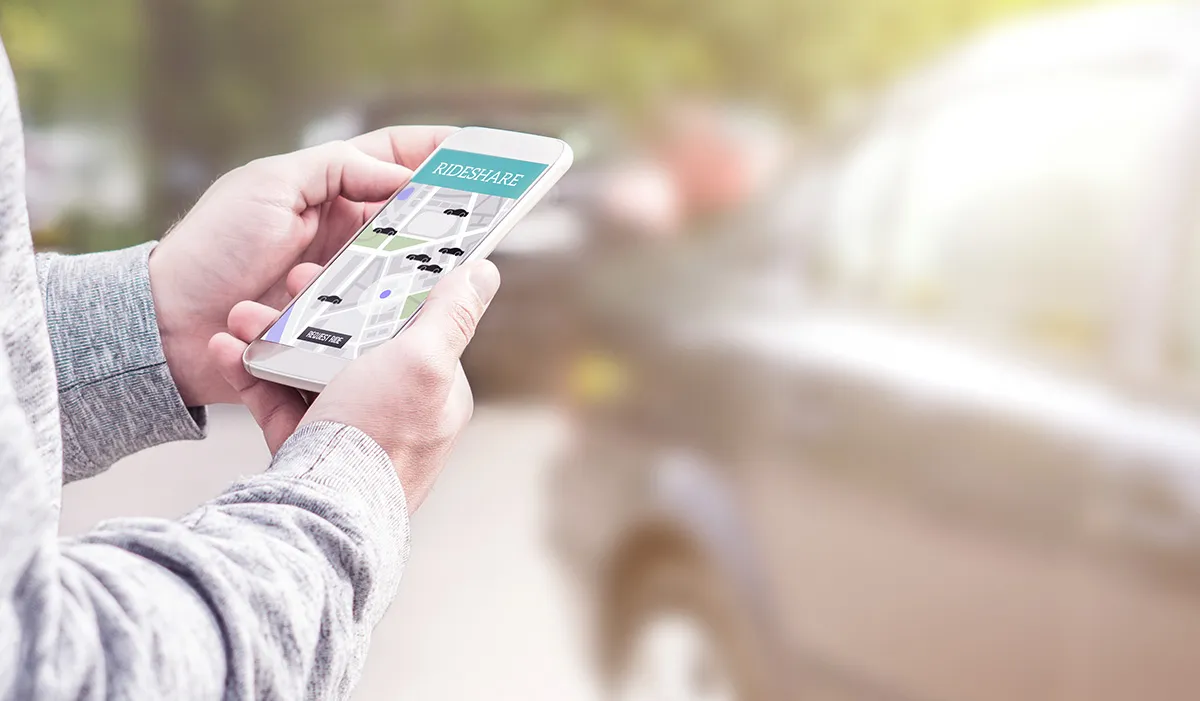As consumers around the world become more conscious of the environment, private vehicle ownership is declining, in favor of car clubs, peer-to-peer car sharing and other car sharing companies. But to deliver user experiences that will help them compete, these organizations must make optimal use of the connected car data that is available to them. In this article, we look at how they can do that.

Car clubs have become a regular part of life in many cities, having filled a gap in the transport market. Rather than having to commit to the cost of owning a car outright, they enable their members to use a vehicle when they need it – even if it’s only for an hour per day or week. It’s a compelling proposition for many city dwellers – which could explain why the market has continued to grow despite the pandemic. According to new research by IoT analysts Berg Insight, the number of users of car sharing services worldwide is set to grow from 71.9 million people in 2020 to 190.3 million people in 2025¹.
The convenience of being able to download an app and access a vehicle on-demand is proving increasingly appealing for people who don’t have a strong incentive to buy a car of their own. However, with the demand for car sharing platforms increasing, the businesses behind them are having to rethink every aspect of car ownership, operation, and maintenance. This is where telematics and connected car data comes in.
The following information has been pulled from the IMS white paper entitled: “Telematics Benefits To Vehicle Rental Companies And Car Clubs”.
Car clubs exist in two basic forms:
- Those that operate on a fleet-owned basis, such as Zipcar and Enterprise Car Club, offering an automated way to rent a vehicle hourly, daily, or overnight
- Those that operate on a P2P car sharing basis, such as Turo, providing car sharing between individual vehicle owners and renters
Both types of shared mobility service face challenges such as vehicle theft, damage, unreported accidents, and vehicle location concerns. Connected car data is proving once again to be a valuable technology for capturing and evaluating vehicle operational data. This data can support innovation and guide decision-making, helping car sharing platforms achieve their business goals. Above all, it can give car sharing companies more control over their vehicles.
Let’s look at some of the most important challenges facing shared car platforms – and how telematics and connected car data can help:
1. Vehicle Location and Theft

| Challenge | How data can help |
| A reliable mechanism for confirming the location of dropped-off vehicles is vital, particularly if a vehicle has been dropped off in an unexpected location, or if it has been towed. Remote access technologies have also escalated the problem of theft, which is growing as thieves discover new ways to circumvent security systems. | Being able to locate a vehicle—regardless of whether it is stolen, towed, impounded, used in a crime, or parked in an unauthorized location— is critical for car-sharing platforms. Using a telematics solution, various geolocation strategies can often be accessed, which means theft can be detected and vehicles can be recovered. |
2. Unreported Accidents and Claims

| Challenge | How Data Can Help |
| Long-standing problems exist around unreported accidents taking place during vehicle use. Vehicles are frequently dropped off without the owners or responsible agency being able to inspect them on return. This means car clubs have to rely on the honesty of the driver to report any damage or incidents. | Having access to connected car data enables car clubs to accurately identify when accidents have taken place. This can help ensure accident detection and liability at time of the collision and improve handling of damage issues when a vehicle is dropped off at the end of the hire period. |
3. Vehicle Usage and Driving Behavior

| Challenge | How Data Can Help |
| Because of the rapid turnover of drivers, daily or hourly use of vehicles poses a difficult challenge: keeping vehicles in service as much as possible. Drivers seeking to make money by including their vehicle in a shared mobility program need assurance that their car will still be there when they need it. A small but problematic proportion of drivers that rent vehicles treat them recklessly, while poor driver behavior directly affects profits for car clubs. | Having access to connected car data via telematics allows car clubs to provide a fully managed service and monitor their vehicles effectively. They can also benefit from driver behavior information, screening for those drivers most likely to cause damage and problems to vehicles. New techniques based on telematics technologies have already shown promise, helping improve driving behavior and in extreme circumstances, bad drivers can be blocked from renting vehicles. |
These are just some of the benefits that car clubs with access to connected car data can enjoy.
To get the entire insight and information, download the full whitepaper at: https://ims.tech/resources/telematics-benefits-to-vehicle-rental-companies-and-car-clubs/
About IMS
IMS (Insurance & Mobility Solutions) is a vehicle and driving data business, delivering enterprise solutions to over 350 customers including mobility operators, insurers and governments. IMS recently launched its Vehicle Data Exchange, which enables the IMS DriveSync platform to ingest and process data from any source – from OEM embedded units to smartphones and aftermarket hardware. The company, with offices in the UK, Europe and North America, has analyzed over 15 billion driving miles and its algorithms are fed by trillions of data points every hour.
For more information, visit www.ims.tech/carsharing IMS provides a suite of solutions that help car clubs and carsharing businesses optimize operations, lower costs and delivery a high quality of customer service:
IMS Vehicle Data Exchange: IMS provide a data-agnostic one-stop platform which houses the ability to collect data directly from any vehicle – including directly from OEMs supported embedded telematics and other vehicles equipped with aftermarket data sources. Learn the types of data you can access and the benefits your business can accrue. For more information visit: www.ims.tech/vdx
IMS Vehicle Security Solution: Preventing theft and efficiently recovering lost or stolen vehicles can be accomplished with this unique complete fully managed service covering vehicle security hardware, monitoring and repatriation and recovery services. For more information visit: https://ims.tech/security/
IMS One App with SDK for Driver Behavior – With the IMS SDK, you can now access driver behavior insight, directly from your existing car sharing or car club app. Find more info in our SDK Data Sheet: https://ims.tech/resources/ims-sdk/
IMS Connected Claims Solution: IMS Connected Claims, featuring the patent pending and proprietary low-cost Wedge, ensures live accident detection and FNOL processing while delivering benefits and cost savings no other providers can in the areas of claims handling and claims liability. This service can also help improve management of the claims process. Find out more info in our Connected Claims Data Sheet: https://ims.tech/resources/improve-claims-savings-featuring-the-wedge/

